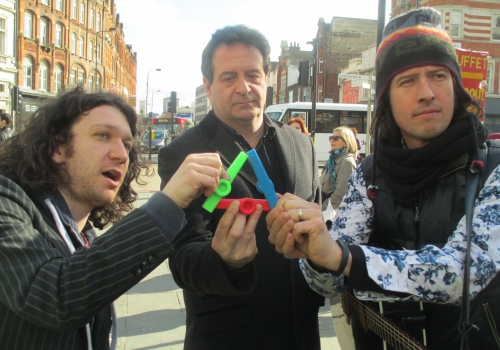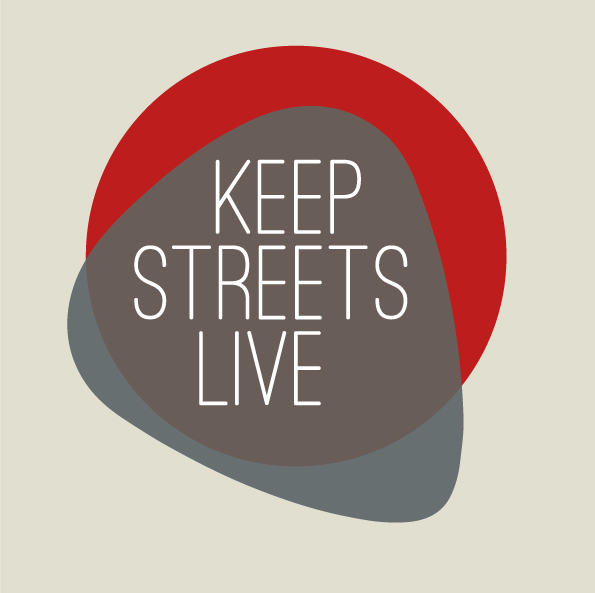PUBLISHED in Keep Streets Live in Camden FACEBOOK group by Jonny Walker, ASAP’s Founding Director. ‘Like’ the page here.
In this deputation I am calling upon the Licensing Committee to recommend to Council that the plans to license busking in the Borough of Camden be dropped immediately and that the council instead begins a new process of consultation in the form of a public forum involving residents, business owners, musicians, artists and professional bodies to work out a way of managing the issues that arise from busking.
In the report that was prepared for Cabinet last week and sits before you tonight many claims were made.
It is claimed that this policy ‘takes into the account the priority of harnessing economic growth by creating a light touch regulatory framework that permits most street entertainment to take place, while taking a proportionate approach on necessary restrictions.
Councillor Abdul Hai claimed that this policy would add value and vibrancy to Camden although he didn’t explain how making people who play the clarinet on the street apply for a special licence that costs £49 and takes 20 working days to process will add to spontaneity and vibrancy is not explained.
He claimed that the the new policy was necessary because busking was impacting upon people’s quality of life and that buskers were suffocating people with continuous, non-stop amplified music.
I have conducted a through analysis of the 108 complaints received in the entire borough of Camden in the last year relating to busking.
42 separate people made one complaint in the year
5 people complained twice
3 people complained three times
3 people complained four times
1 person complained nine times
1 person complained eleven times
1 person complained fifteen times
This means that means that 56 of the 108 total complaints were made by 9 people in the entire Borough of Camden for an entire year.
Many of these complaints are spurious or seem to be complaining about the fact that a busker is there AT ALL:
Complainant 27 : ‘Busking on Camden Lock’
Complainant 25 : ‘Busking on Camden High Street’
Complainant 55: ‘Busker on Canal Tow Path on Oval Road’
Complainant 37: ‘Reporting Busking near Canal Bridge’
Complainant 17: ‘Busker – has been there a number of times – Camden Lock’
Complainant 22: ‘Two African drummers’
Complainant 10: ‘Busker adjacent to canal bridge, camden lock’
Complainant 8: i) ‘bongoes drumming’ ii) 2 LOUD live guitars iii) two drummers outside the station’
Many of these ‘complaints’ are objecting to the very presence of the busker on the street and could well reflect the prejudice of the person calling in. No account is made in the log as to whether the complaint was valid or what investigation was made. This log constitutes a very flimsy evidence base for the introduction of the policy and leaves it wide open to legal challenge. There may be a small minority of residents who feel very strongly that busking should be strictly controlled or banned altogether but is it the job of the council to mould the culture of Camden around the desires of a small group of people, or rather to keep in mind the common good and act on behalf of all who live, work and visit Camden and make it the wonderful place it is.
Councillor Abdul Hai has claimed in media interviews that 64% of residents support the policy based on the consultation but this claim is entirely misleading.
Firstly only 55 Camden Residents (out of 250,000) responded to the consultation. Of these only 30% were in agreement with all or the majority of the policy whilst a further 39% were mainly in favour of the policy but answered ‘No’ to one or more questions.
Given that the consultation presented busking in a negative light making unsubstantiated claims in its introduction that busking causes danger to people and opportunities for petty criminals (Claims I have asked to see via as yet unanswered Freedom of Information requests) and every question after the first assumed that the policy would be introduced the design of the consultation was intended to produce a desired outcome.
Even so only 16% of the 155 people surveyed agreed with all the policy or most of the policy and over 57% of the people who answered the consultation were either opposed to regulation outright, or opposed regulation whilst agreeing with parts of the policy.
Additionally changes to the 2003 Licensing Act. mean that you no longer need a licence for a range of live music performances that used to require one. The Live Music Act 2012 amended the 2003 Act. These changes are in conflict with the provisions under the London Local Authority Act 2000 section 5 upon which Camden is basing this new policy and will open it up to legal challenge by judicial review.
https://www.gov.uk/entertainment-licensing-changes-under-the-live-music-act
You no longer need a special licence to stage a live music performance if:
it takes place between 8am and 11pm
it takes place at a licensed premises or workplace
the audience is less than 200 people
You don’t need a licence to put on unamplified live music any place between the same hours.
Live music that doesn’t need a licence
Examples of performances that generally don’t need a licence under the Act are:
karaoke
busking
spontaneous singing – eg people singing along to recorded music in a pub
incidental music – live music that is incidental to other activities that aren’t classed as regulated entertainment
rehearsals and sound checks (unless members of the public are charged admittance for the purpose of making profit)
DJ playing tracks (unless he or she performs a set which consists mixing recorded music to create new sounds)
The Live Music Act regulates live performances, not recorded music.
The powers granted to council officials under the new proposals are draconian and contentious. Fines of £1000, the seizure of instruments and selling them after 28 days to pay unpaid fines are measures that come into potential conflict with the Human Rights Act on several grounds including:
Right to liberty and security
Right to a fair trial
No punishment without law
Freedom of thought, belief and religion
Freedom of expression
Freedom of assembly and association
13. Protection from discrimination in respect of these rights and freedoms
14. Right to peaceful enjoyment of your property
Any enforcement action taken against buskers under the new policy would be open to challenge and appeal in the High Court on any of these grounds.
This busking policy will not solve the problem it has been introduced to solve. It is a preposterous overreaction to a relatively small number of complaints that can be addressed using existing legislation and the introduction of a well thought through Code of Conduct that has been agreed between buskers, residents, professional bodies and business representatives. The Council should act as a steward of the common good by providing a forum for the equitable resolution of disputes and not introduce top-heavy legislation with the potential to negatively alter the cultural and social well-being of Camden.
I have attached for the consideration of the committee two examples of well thought through busking policies from Liverpool and Bournemouth that would be cost-effective to introduce and use existing legislation to deal with such issues as do arise.






